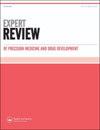Global personalization of antibiotic therapy in critically ill patients
IF 1.2
Q4 PHARMACOLOGY & PHARMACY
Expert Review of Precision Medicine and Drug Development
Pub Date : 2021-03-04
DOI:10.1080/23808993.2021.1874823
引用次数: 4
Abstract
ABSTRACT Introduction: Sepsis from bacterial infection remains a significant cause of morbidity and mortality. Antibiotic use continues to increase in the community and secondary care. This is driven by the potential benefits to the individual patient of a course of antibiotics. Far less attention is given to the potential adverse effects of antibiotic use in our view. These costs may be significant to both the individual and society. Areas covered: We review the evidence underpinning the costs and benefits of antibiotic use. We also discuss strategies to personalize medicine in this area that maximize the benefit to cost ratio for patients and society. Expert opinion: The body’s innate immune response to infection is similar to that of other inflammatory insults. Our view is as clinicians we need to differentiate these responses and hence require an accurate method to determine a diagnosis of a bacterial infection and monitor illness severity. Without this, clinicians will continue to prescribe significant volumes of unnecessary antibiotics in cases of non-bacterial inflammatory states.危重患者抗生素治疗的全球个性化
摘要简介:细菌感染引起的败血症仍然是导致发病率和死亡率的重要原因。在社区和二级护理中,抗生素的使用继续增加。这是由一个疗程的抗生素对个体患者的潜在益处所驱动的。在我们看来,对抗生素使用的潜在不良影响的关注要少得多。这些成本可能对个人和社会都很重要。涵盖的领域:我们审查了支持抗生素使用成本和收益的证据。我们还讨论了在这一领域个性化医疗的策略,以最大限度地提高患者和社会的效益与成本比。专家意见:人体对感染的先天免疫反应与其他炎症性损伤相似。我们的观点是,作为临床医生,我们需要区分这些反应,因此需要一种准确的方法来确定细菌感染的诊断并监测疾病的严重程度。如果没有这一点,临床医生将继续在非细菌炎症状态下开出大量不必要的抗生素。
本文章由计算机程序翻译,如有差异,请以英文原文为准。
求助全文
约1分钟内获得全文
求助全文
来源期刊

Expert Review of Precision Medicine and Drug Development
PHARMACOLOGY & PHARMACY-
CiteScore
2.30
自引率
0.00%
发文量
9
期刊介绍:
Expert Review of Precision Medicine and Drug Development publishes primarily review articles covering the development and clinical application of medicine to be used in a personalized therapy setting; in addition, the journal also publishes original research and commentary-style articles. In an era where medicine is recognizing that a one-size-fits-all approach is not always appropriate, it has become necessary to identify patients responsive to treatments and treat patient populations using a tailored approach. Areas covered include: Development and application of drugs targeted to specific genotypes and populations, as well as advanced diagnostic technologies and significant biomarkers that aid in this. Clinical trials and case studies within personalized therapy and drug development. Screening, prediction and prevention of disease, prediction of adverse events, treatment monitoring, effects of metabolomics and microbiomics on treatment. Secondary population research, genome-wide association studies, disease–gene association studies, personal genome technologies. Ethical and cost–benefit issues, the impact to healthcare and business infrastructure, and regulatory issues.
 求助内容:
求助内容: 应助结果提醒方式:
应助结果提醒方式:


